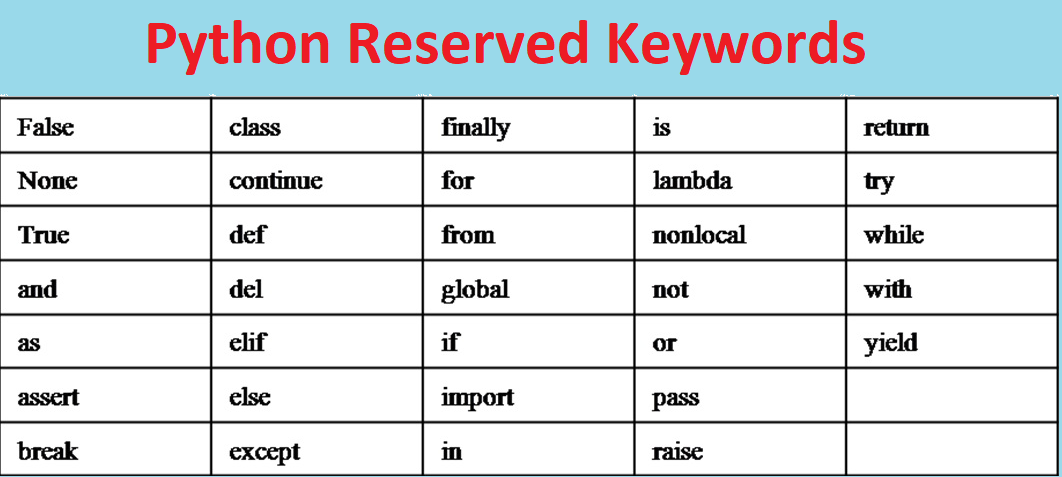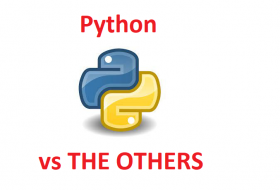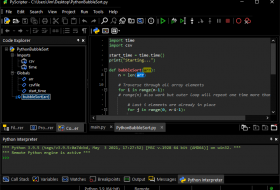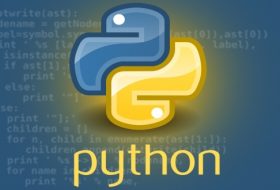Table of Contents
- Exploring the Impact of Python’s Reserved Keywords on Programmers
- A Comprehensive Guide to Understanding Python’s Reserved Keywords
- How to Use Python’s Reserved Keywords to Your Advantage
- Common Mistakes to Avoid When Working with Python’s Reserved Keywords
- A Beginner’s Guide to Mastering Python’s Reserved Keywords
Exploring the Impact of Python’s Reserved Keywords on Programmers
Python is a powerful and versatile programming language that has become increasingly popular in recent years. As with any programming language, Python has a set of reserved keywords that are used to define the language’s syntax and structure. These keywords are essential for writing code in Python, and understanding how they work can help programmers write more efficient and effective code. In this article, we’ll explore the impact of Python’s reserved keywords on programmers and how they can be used to create better code.
Python’s reserved keywords are words that have a special meaning in the language. They are used to define the structure of a program and are essential for writing code in Python. For example, the keyword “def” is used to define a function, while the keyword “if” is used to create a conditional statement. Knowing how to use these keywords correctly is essential for writing effective code.
Using Python’s reserved keywords correctly can help programmers write more efficient code. By understanding the meaning of each keyword and how it works, programmers can create code that is more concise and easier to read. This can help reduce the amount of time it takes to debug and maintain code, as well as make it easier for other programmers to understand.
Python’s reserved keywords can also help programmers create more robust code. By understanding the meaning of each keyword and how it works, programmers can create code that is more secure and reliable. This can help reduce the risk of errors and bugs in the code, as well as make it easier to maintain and update.
Finally, Python’s reserved keywords can help programmers create more expressive code. By understanding the meaning of each keyword and how it works, programmers can create code that is more expressive and easier to read. This can help make code more readable and understandable, as well as make it easier to debug and maintain.
In conclusion, Python’s reserved keywords are essential for writing code in Python. Understanding how they work and how to use them correctly can help programmers write more efficient, robust, and expressive code. By taking the time to learn and understand Python’s reserved keywords, programmers can create better code and reduce the amount of time it takes to debug and maintain it.
A Comprehensive Guide to Understanding Python’s Reserved Keywords
Welcome to the world of Python! Python is a powerful and versatile programming language that can be used for a variety of tasks. As you learn more about Python, you’ll come across some words that are reserved for special purposes. These words are known as reserved keywords, and they are an important part of the Python language.
In this guide, we’ll explain what reserved keywords are and why they are important. We’ll also provide a comprehensive list of all the reserved keywords in Python, so you can easily reference them as you learn more about the language. Let’s get started!
What Are Reserved Keywords?
Reserved keywords are words that have a special meaning in Python. They are used to identify specific instructions or functions within the language. For example, the keyword “print” is used to print out a value or message.
Reserved keywords are also known as “reserved words” or “keywords.” They are words that are part of the Python language and cannot be used as variable names, function names, or any other identifier.
Why Are Reserved Keywords Important?
Reserved keywords are important because they help the Python interpreter understand what you are trying to do. Without them, the interpreter would not be able to distinguish between instructions and other words.
For example, if you wrote a line of code like this:
print “Hello World!”
The Python interpreter would know that you are trying to print out the message “Hello World!” because of the keyword “print.” Without the keyword, the interpreter would not know what to do with the line of code.
Comprehensive List of Python Reserved Keywords
Below is a comprehensive list of all the reserved keywords in Python. It is important to note that this list is subject to change as new versions of Python are released. And hew is a Wiki page for further reading
and
as
assert
break
class
continue
def
del
elif
else
except
finally
for
from
global
if
import
in
is
lambda
nonlocal
not
or
pass
raise
return
try
while
with
yield
How to Use Python’s Reserved Keywords to Your Advantage.
The first step to using Python’s reserved keywords is to understand what they are and how they work. The most commonly used keywords are “if”, “else”, “while”, “for”, “try”, “except”, and “finally”. Each of these keywords has a specific purpose and can be used to control the flow of your program.
For example, the “if” keyword is used to check if a certain condition is true. If the condition is true, then the code inside the “if” statement will be executed. If the condition is false, then the code inside the “else” statement will be executed. This allows you to create complex logic in your program without having to write a lot of code.
The “while” keyword is used to create a loop. This allows you to repeat a certain set of instructions until a certain condition is met. This is useful for tasks that need to be repeated multiple times, such as searching through a list of items or iterating through a set of numbers.
The “for” keyword is used to iterate through a sequence of items. This is useful for tasks such as looping through a list of numbers or strings.
The “try” and “except” keywords are used to handle errors in your program. The “try” statement is used to execute a certain set of instructions, and if an error occurs, the “except” statement will be executed. This allows you to gracefully handle errors in your program without crashing it.
Finally, the “finally” keyword is used to execute a certain set of instructions regardless of whether an error occurred or not. This is useful for tasks such as closing a file or releasing a resource.
By understanding and using Python’s reserved keywords, you can make your code more efficient and easier to read. This will help you create better programs and applications in less time.
Common Mistakes to Avoid When Working with Python’s Reserved Keywords
When working with Python’s reserved keywords, it’s important to be aware of the potential mistakes you can make. Here are some of the most common mistakes to avoid:
1. Using a keyword as a variable name: Python’s reserved keywords cannot be used as variable names. Doing so will result in a SyntaxError.
2. Using a keyword as a function name: Similarly, Python’s reserved keywords cannot be used as function names. This will also result in a SyntaxError.
3. Using a keyword as an argument name: When defining a function, you cannot use a keyword as an argument name. This will also result in a SyntaxError.
4. Using a keyword in a loop: You cannot use a keyword in a loop, such as a for loop or a while loop. This will also result in a SyntaxError.
5. Using a keyword in a try/except statement: You cannot use a keyword in a try/except statement. This will also result in a SyntaxError.
By avoiding these common mistakes, you can ensure that your code runs smoothly and without any errors. Happy coding!
A Beginner’s Guide to Mastering Python’s Reserved Keywords
False, None, True, and, as, assert, break, class, continue, def, del, elif, else, except, finally, for, from, global, if, import, in, is, lambda, nonlocal, not, or, pass, raise, return, try, while, with, yield.
Now that you know the list of reserved keywords in Python, let’s talk about how to use them correctly. When writing code in Python, you should always use the exact keyword as it appears in the list. For example, if you want to use the keyword “if”, you should always write it as “if” and not “If” or “IF”.
It’s also important to remember that reserved keywords are case-sensitive. This means that “if” and “IF” are not the same keyword. So make sure you use the correct case when writing code in Python.
Finally, it’s important to note that some of the reserved keywords in Python can be used as variable names. However, it’s best to avoid using reserved keywords as variable names, as this can lead to confusion and errors.
We hope this guide has been helpful in introducing you to Python‘s reserved keywords. With a little practice, you’ll soon be a master of Python’s reserved keywords!







